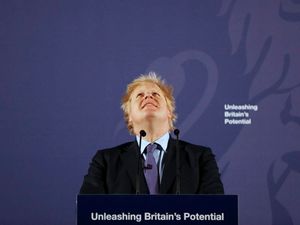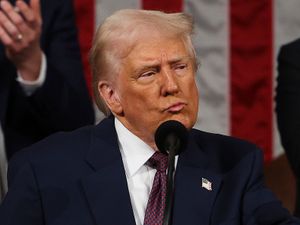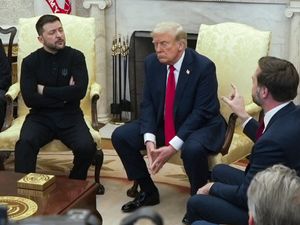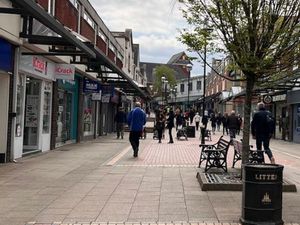Boris Johnson and Brussels set out competing visions for post-Brexit trade
Access of EU trawlers to British fishing waters and the application of Brussels’ rules in Britain are early flashpoints in the negotiations.

The UK and European Union are on collision course for a Brexit trade battle as Boris Johnson and Michel Barnier set out competing visions of the future relationship.
Major stumbling blocks are already obvious, just days after the UK left the European Union, with battles over fishing and the application of a “level playing field” on issues including state subsidies, environmental standards and workers’ rights.
The Prime Minister insisted there was “no need” to abide by EU rules and said that British fishing grounds are “first and foremost” for UK boats.
But the EU’s chief negotiator Michel Barnier said that allowing European trawlers into British waters was “inextricably linked” to securing a trade deal.
And he pointed to the joint Political Declaration, agreed with Mr Johnson, which committed the UK to”robust commitments to ensure a level playing field”.
The Prime Minister used a speech in Greenwich, south-east London, to stress his commitment to free trade – and signal his determination to secure an arrangement with Brussels along the lines of that agreed between the EU and Canada.
“There is no need for a free trade agreement to involve accepting EU rules on competition policies, subsidies, social protection, the environment or anything similar, any more than the EU should be obliged to accept UK rules,” he said.
“The UK will maintain the highest standards in these areas, better in many respects than those of the EU, without the compulsion of a treaty.”
Downing Street said the UK will agree to some regulatory alignment with the EU, as Canada has done, but would not accept alleged breaches being ruled on by the European Court of Justice.
Mr Johnson confirmed that if a Canada-style agreement was not possible, he would be prepared to walk away without a full trade deal, like Australia’s relationship with the EU.
“The question is whether we agree a trading relationship with the EU comparable to Canada’s or more like Australia’s and I have no doubt that in either case the UK will prosper mightily,” he said.
Mr Johnson insisted that leaving on the far looser terms would be an “unlikely event”, which he claimed was “emphatically” not a no-deal scenario.
However, it would leave the UK trading with the EU under the high tariffs set by the World Trade Organisation, though side deals could be struck to ensure areas such as aviation can run smoothly.
Number 10 was claiming a no-deal Brexit was now “an irrelevant concept” because of the Withdrawal Agreement in place, though that falls far short of being a trade deal.
“The issues of citizens’ rights, of the Northern Irish border, they are now settled – over and done with,” the Prime Minister’s official spokesman said.
While the Government was ready to consider an agreement with Brussels on fisheries, “it must reflect the fact that the UK will be an independent coastal state from the end of this year, controlling our own waters”.
“Under such an agreement there would be annual negotiations with the EU, using the latest scientific data, ensuring British fishing grounds are first and foremost for British boats.”
Shortly before Mr Johnson spoke, the EU set out its draft negotiating mandate, calling for “reciprocal access” for fishing vessels, and stating that a free trade area with no tariffs or quotas was contingent on a “level playing field … ensured through robust commitments”.
Mr Barnier told reporters in Brussels: “It’s clear that the agreement that we wish to have in the interests of UK fishermen and in the interests of European fishermen – I call that reciprocal access to our territorial waters and our markets – that agreement on fisheries will be inextricably linked to the trade agreement, as indeed will be… the agreement on the level playing field agreed with Boris Johnson.”
He said that “where there’s a will, there’s a way” to reach a deal.
“But we are constrained by the decision, if it’s confirmed, the decision of Boris Johnson to leave the single market and the customs union at the end of this year.”
Mr Barnier, who said he had a “very direct and frank relationship” with the Prime Minister, suggested it would not be possible to complete the whole deal within 11 months.
The Confederation of British Industry (CBI) warned that firms could be caught in the crossfire during the trade talks.
CBI president John Allan said business optimism was returning but warned that talk of a “bare bones” trade deal could “pause” investment.
“The challenge is to ensure business confidence is not caught in the crossfire of a tough, public negotiation,” he said.





